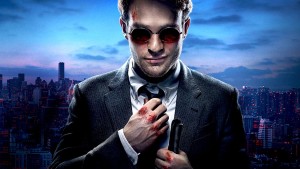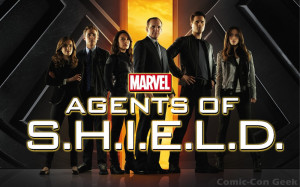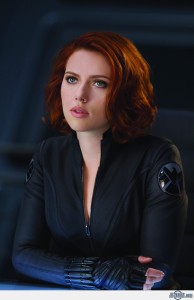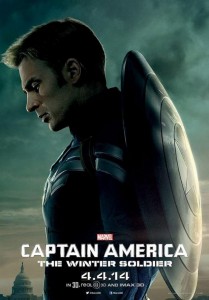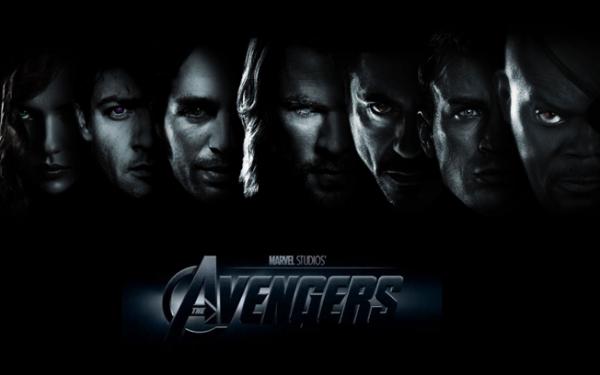In case you missed it, Netflix’s original series Daredevil is like a second Christmas. You wait all year long for it, anticipating it highly, and staring obsessively at the clock the night before hoping you got everything you wanted. And in many respects, it actually delivers. It’s a smart, biting, gritty, (mostly) realistic show that details a vigilante’s struggle against the criminal element while also examining the inner demons he fights along the way. The first season made a huge splash because none of us expected it to be anywhere near as good as it was because we’ve sadly had to get accustomed to the TV-budget versions of heroes where nearly all of their comic book storylines are adapted and changed. (I’ve come to call it “CW-ing” them.) Because Netflix isn’t bound by ratings or having to stay PG-13, it was allowed to take a LOT of risks and to more directly adapt some of the storylines and character beats from the comics. Let’s take a look at what it has to teach us now that we’ve got two seasons under our belts.
As always, massive spoilers ahead. Don’t read if you’re not updated on both seasons yet.
1. The fastest way to a great story is investing time in your main cast. For me, this is the main reason why I love the Daredevil series. Often with superhero-related stories, the writers feel the need to rush to the action, and so you end up with some gorgeous fight sequences but it doesn’t have an impact on your audience because we’re not invested in the character. For me, this was one of the biggest issues I had with Man of Steel. Sure, I liked Clark alright, but I didn’t really know much about him because the story rushed onward to get to different set pieces and introduce the new cast. With Daredevil, we are shown all sides of Matt Murdock, from the pure and holy to the nitty gritty darkness nestled inside him. We see him struggle from childhood to teenage years to college years to his adulthood with suppressed anger at the injustice he’s had to watch in Hell’s Kitchen. We see that he is without a doubt a good man who wants to save people, but that he is also extremely flawed. Therefore, when his life is in danger, you get those “clutch your arm rest and squirm” moments when you see him getting his ass kicked by the scum of Hell’s Kitchen.
But that’s not all. Not only do we see a full-spread of emotions and intricacies for Matt Murdock, but we’re also treated to fantastic supporting characters like Foggy Nelson, Claire Temple, Ben Yorick, and even the freaking villain himself Wilson Fisk. (I’ve left Karen off for now, but don’t worry, we’ll circle back around to her further down.) I can’t believe how amazing the character development was for the supporting characters in this series. We get to learn so much about them and they are so damned easy to love. My personal favorites are Claire Temple and Foggy Nelson, who are both excellent contrasts to Matt Murdock. Claire is strong, decisive, smart, and compassionate, but still vulnerable. Foggy is hilarious, heart-warmingly kind, razor-sharp, and brave, but often shy and non-confrontational. They do so much to smack some sense into Matt (though it doesn’t exactly stick) and even though he frustrates them to no end, they still care for him either way. In the case of Wilson Fisk, we are shown that he is basically an animal in a human suit, but it comes with a solid reason when his background is revealed. One of the best writing rules is that villains see themselves at the hero of their own story, and this is very much the case for Wilson Fisk. He thinks razing the city to the ground and starting over is the only way to save it, and while he’s definitely a brute, it’s easy to understand why he thinks that way.
As a writer, I can attest to the fact that I very strongly believe that getting your readers invested in the characters as soon as possible is the right way to go. The reason is that it will allow you the time you need to set up a great story once you have your audience’s full attention and trust. We are often more tolerant of a story taking time to develop if we immediately are entertained or grow fond of our protagonists and antagonists right off the bat. You can make me believe the most ridiculous premise imaginable as long as I give a crap about the main leads. That’s the honest to God truth about writing.
2. Realism is a double-edged sword, to be used very carefully. Another reason Daredevil made a huge splash with its first season is that we got some of the most brutal yet realistic fight scenes ever. I mean, take a look at the hallway fight sequence.
God. It’s…breathtaking. This is not to say that movies and television don’t have realistic fights all the time, but according to Word of God, this was done in one freaking shot. One. That is incredible filmmaking. I mean, that’s some Emmy/Oscar worthy stuff right there, and that’s pretty much what cemented this series in the hearts of many fans. We love attention to detail with realism in today’s society.
For example, showing all the modern tech available for the blind was also massively interesting to me, from Matt’s alarm clock and ringtones to how he reads information on the Internet. It’s showing us the work that was put in to having a blind protagonist and not making it seem like he’s handicapped or anything less than a normal person. It’s a rarely seen perspective that is much appreciated. No pun intended.
However, the flip side of that is that the show quickly established that it wants to be realistic, but then we still have gaping logic holes in certain character’s actions on occasion that can REALLY snap you out of the story. In season one, we had the beloved Wesley, Wilson Fisk’s righthand man, kidnapping Karen Page and threatening her to give up her investigation…and then he puts a gun with live rounds right in front of her on a table. So guess what happens. I mean, really? Wesley is a career criminal who acts with total logic and discretion at all times and who has gotten out of many a scrape using his brain and connections and he goes out like a bitch. I hated it. I hated it so much, and it’s definitely a fault in the writing.
My second example comes from our recent season, where Frank Castle, aka the Punisher, escapes from prison and everyone is 100% certain he’s going to come after the District Attorney who put him there to begin with. So what do they do? Leave her alone in her office standing in front of not one but two HUGE windows despite the fact that the Punisher’s M.O. is to use high powered rifles to take out his targets through windows. I’m not kidding. She stands with her back to the biggest window ever for the entirety of her conversation with Nelson and Murdock, not wearing body armor and not even having a policeman in the room to check the perimeter. So guess what happens? For God’s sake, it was so frustrating that I had to turn off the episode and find something else to do while I was calming myself down.
If you have a story and you make it clear that you want to stick to realism, then you have to go all in. You can’t pick and choose when things will be realistic as hell and then completely back out on it in order to move the plot forward. It’s one or the other. It’s the same reason why I find Sharknado so utterly confusing, which I know is a weird comparison. The movie clearly is bad on purpose, and yet you still have these bizarre moments where it tries to operate on logic and physics when it is in fact a movie about flying sharks that somehow don’t suffocate in mid-air and still feel the need to eat people. One of these things is not like the other. You can’t have your cake and eat it too. You have to be consistent in your writing, whether you lean towards realism or the fantastic.
3. Beware the Writer’s Pet. If you’re unfamiliar with TV Tropes, you should really get acquainted. It’s a wonderful site that collects well-known tropes in all forms of media and provides examples. It’s not only fun and hilarious, but it’s also a great teaching tool for writers. To that end, let’s discuss one right now with Karen Page.
I tried to give Karen Page a chance in season one. I really did. It was very sympathetic what happened to her with the death of her friend/coworker Daniel, and I like her gung-ho attitude about exposing the truth about the cover up and Fisk’s organization. However, as the season progressed, it became more and more clear that she was getting treatment that the other characters were not. Sometimes writers get this attachment to a character that puts them on a pedestal safe from harm even though every other character gets the shaft, or has to deal with the karma from their actions. Karen Page is definitely an example of a Writer’s Pet, of a character who gets the exception every single time and doesn’t have to work at not getting screwed over by the brutality of life. Karen Page has had it rough, but she constantly lucks out of every situation, much like another blonde from a television show whom I hate to the depths of my soul.
Writer’s Pets help absolutely no one. It is a bad habit. It seriously decreases the ability to like a character who can’t get themselves out of their own mess and who gets Deus Ex Machina’d out of every scrape even though the other protagonists are forced to make their own way. To me, Karen Page is a damsel in distress who is delusional and thinks she’s actually a badass investigator with street smarts. This show has been absolutely ruthless with its characters, often killing off sweet old ladies or showing bad guys attached to meat hooks with their guts spilling out, but sweet widdle Karen Page escapes everything without a damn scrape.
The lesson here is don’t wrap your characters up in bubble wrap and rock them to sleep. Punish them. Make them cry. Make them squirm. Make them suffer. You still have the choice to make it all worthwhile and to give them a happy ending if it fits the story and if they deserve one, but nothing will be gained by placing them on a pedestal because you just happen to like them so much. It’ll come through in your writing very clearly if you’re holding back because you have a favorite. It’s totally fine to have a favorite, but don’t get soft. If you love them, hurt them for the good of their growth and for the good of the story.
4. Take “Woobie” out of your writing repertoire forever. If you know anything about me, you know that I believe in the Jim Butcher school of “torture every character equally and make them earn their keep so your writing will be awesome.” Daredevil as a show does very well with this in both seasons, except for two characters so far. The first we’ve already discussed is Karen Page. The second, as of season two, is Frank Castle, aka The Punisher. It’s time to get on a bit of a soapbox in this particular case.
Woobification is basically when a clearly bad or evil character becomes someone whom the fandom dotes all their affection on and claims that they are the victim here instead of the antagonist. They are in fact wrong, and projecting their feelings onto this character for whatever reason. A good example of this is Grant Ward from the Agents of SHIELD franchise. He is literally a Neo-Nazi murderer who constantly excused his actions because of his abusive past, and he had a large portion of the AoS fandom on his side constantly excusing his behavior and “standing with him” no matter what horrible thing he did, from shooting people through the throat in cold blood to crashing an entire plane full of innocents just to get a ride into restricted areas. Grant Ward is trash, plain and simple. Yet somehow, he has fans.
Likewise, the Punisher has Karen Page. Seriously. We’re talking about a man who hung bad guys up on meat hooks alive and cut them open and let them slowly bleed to death and suffocate as they drowned in their own blood. And yet Karen Page repeatedly claims that, “He’s not a psychotic murderer!” every single time someone said that about him. This is a man who opened fire on her with a shotgun. This is a man who pistol-whipped someone until his face cracked open like an egg in front of her before shooting him in the head. This is a man who slits people’s throats with shivs. But no, he’s not a psychotic murderer even though a professional medical examiner proved that he suffers from a psychosis in which he constantly relives the death of his family, which bends his perception of reality to the point where he thinks he is never wrong and so he doesn’t regret any of the hundreds of lives he’s wiped out. Yeah, his family was brutally murdered and died in his arms. But guess what?
Writers of the world, I beg you to stop writing this damn trope.
Karen Page really does somehow think that Frank Castle isn’t the scum of the earth, and even though we know her Freudian excuse is that she murdered Wesley and she’s trying to excuse her own crime inwardly, there is no reason that they wrote her as a Punisher Stan in season two. Do not write a character as a monster and then spend the rest of your time trying to explain away his monstrosity. If you’re going to redeem him, do it. But don’t constantly browbeat us with flawed reasoning that he wasn’t as bad as we think he is. We’re okay with the grey area. We’re adults. Treat us like thinking adults. Most of us aren’t going to swallow this crap that he’s not such a bad guy or that he’s a good man when he hung people on meat hooks and split them open like pig carcasses and let them die in horrible screaming agony. Stop trying to make Fetch happen. It’s not going to happen.
5. Beware the “He Who Fights Monsters” trope and use it wisely. One thing that Daredevil also does extremely well is exploring guilt and doubt about vigilantism. Matt constantly questions if he’s doing what is needed for the city, or if he’s simple satisfying his own savage nature born out of witnessing his father’s death at the hands of criminals in Hell’s Kitchen. This is great. It’s a fantastic theme of inner conflict for him, and it negatively affects his whole life as a result, forcing him to choose between what he thinks is justice and his own friends.
However, season two might have taken it a bit too far.
Matt basically ends up systematically alienating his closest friends and allies in season two because of his ridiculous belief that he needs to cut all ties in order to keep them safe. He plunges Foggy into the worst case imaginable, namely trying to reduce the sentence of known crazy murderer Frank Castle, and then bails on helping with the case because of his private crusade with old flame Elektra. Then when Foggy confronts him about getting himself killed while recklessly running into things headfirst as Daredevil, Matt severs ties with him and refuses to apologize for who he is to the guy who has covered for his ass a dozen times and only chastises him because he doesn’t want him dead. Then Matt receives some rather wise comfort from our resident goddess Claire Temple and he still doesn’t listen to her, and inadvertently causes her to quit her job after he brings her a group of patients who are followed by ruthless ninjas. All of this is on top of the fact that The Punisher thinks Matt is one bad day away from being him, even though Frank is clearly cuckoo for Cocoa Puffs and has barely a spoonful of humanity left.
Matt’s actions don’t feel like he’s trying to protect his friends. It feels like he’s just being a cold-hearted dick to the people who love him, the people who comfort him, the people who try to help him at every turn even when he gets them in trouble. What I don’t like about season two is that Matt can’t see that even if he avoids his friends, that doesn’t mean they just stop caring or worrying over him. It’s much easier to deal with that concern if the object of your concern shows that they acknowledge what you’re going through and still tries to support you somehow. Matt bails on all of them, and I like him less for it even though I get where the show is trying to go.
It is a very fine line to walk with the He Who Fights Monsters trope. I based my second novel around it, in fact, and I’ve had to reap both the benefits and the negatives from that experience. Some readers were extremely frustrated with Jordan, but they understood what she did and supported her anyway. Other readers got too angry and threw in the towel, and that’s fine too. It’s not for everyone. I think Daredevil gambled and lost with this trope. I think Matt tripped and fell into the Unlikable category, and that’s why I caution all writers to examine where you’re going with your character and make sure you don’t push them to the point of not being relatable. This is not to say that I’ll give up on Matt, but his actions made me lose a chunk of respect and affection for him because he was so dickish.
6. Let your characters grow and learn from their mistakes. Matt Murdock might be one of the most stubborn sons of bitches alive. Honestly, from season one and on he really convinces himself that punching the problem in the face is the best way to go. In some respects, yes, it works. All the small time thugs and criminals are apprehended and sent to serve out their sentence. The big wigs are much harder to keep in jail, but eventually, even they get their comeuppance, like with Wilson Fisk.
However, season two falls into the same trap that made me dislike season one somewhat. Matt just keeps doing the exact same thing a hundred times and yet still expects a different result. He runs headfirst into every problem and just assumes he’s tough enough to survive the consequences. One thing that I’ve always liked about Batman, who has a vein of similarities with Daredevil, is that he does understand that there is more to fighting crime than just punching dudes unconscious. He also investigates crimes and foils them before they happen instead of just reacting to everything. He carries gadgets that make life easier. He studied criminology and allegedly every fighting style known to man. He prepared himself as much as possible, and then he went out into the streets of Gotham to help his fellow man. And Matt Murdock, two seasons in, is still just punching dudes.
You have to expand. You have to innovate or at least self-correct with your characters depending on whether you write a stand-alone work or a series. It gets repetitive and frustrating if your hero refuses to see the plain logic in front of him that “this is not working and if I’m going to be an effective [x], I need to change my ways.” It’s natural for our protagonists to fail, and most of the time, it’s necessary for their overall growth. But after they fail, you need to alter them somehow. Show them a new path. Make them realize they screwed up and change their course to a better tomorrow. Otherwise, it can make the reader extremely angry with them and sever the connection you made to begin with. Nobody wants that. We all want to root for someone we care about and relate to, so don’t cut corners by letting them stay static forever.
All that being said, Daredevil is one hell of a show and I am already raring for the next season. Pun fully intended.
Kyo out.
